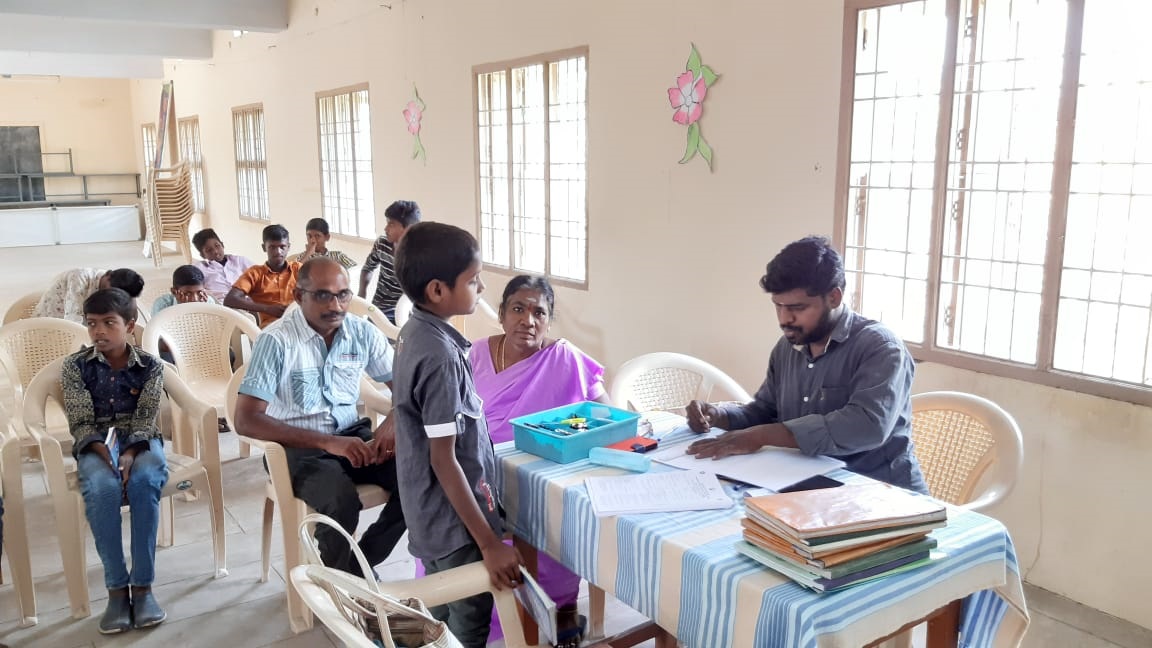
INDIA: Youth with HIV/AIDS receive support to focus on the future
Donors from Salesian Missions provide funding to help support program that cares for youth with HIV/AIDS.
NEW ROCHELLE, NY (May 10, 2021) Don Bosco Anbu Illam, located in Namakkal, Tamil Nadu, India, received donor funding from Salesian Missions, the U.S. development arm of the Salesians of Don Bosco, to help support its Don Bosco Care Home program, which provides for youth who have HIV/AIDS. Don Bosco Care Home serves at-risk youth and those with a positive HIV diagnosis. Currently, there are 47 boarders at the home.
The first case of HIV/AIDS was reported in India in Tamil Nadu in 1986. Close to 38 percent of those infected with HIV in India are women, and 55,000 to 60,000 children are born every year to mothers who are HIV positive. UNICEF notes that without treatment, these newborns are at a 30 percent risk of becoming infected during the mother’s pregnancy, labor or through breastfeeding after six months.
Entrenched gender inequalities, chronic and debilitating poverty and stubborn persistence of HIV/AIDS-related stigma and discrimination significantly contribute to the continuing spread of the infection and hinder those who test positive from seeking treatment. Even young children with HIV/AIDS have been rejected by their families and local communities.
Salesian missionaries identify HIV-affected youth from local villages and provide them free boarding and lodging to help support them in leading a life where they are loved and cared about. Good nutrition is served so youth can improve their CD4 counts.
Youth are also are able to access medical care. Regular medical check-ups are provided by a team of doctors who come to Don Bosco Care Home and conduct medical camps where youth can access critical antiretroviral therapy treatments (ART). Youth who do not live at the home, including those who attend the local polytechnic college, also have access to the program’s ART treatments.
At Don Bosco Care Home, youth are also able to access psychological support through counseling and psychotherapy sessions. Trained and experienced social workers and counselors conduct these sessions where youth are able to address their mental health needs and are motivated to lead a positive life.
The program has been particularly effective because youth are able to study and build peer relationships in a safe and supportive environment free from the stigma and rejection they previously encountered. In addition to their school studies, boys take care of the animals and birds at the facility and work the land cultivating fruits and vegetables. They also participate in sports each day. Special programs are also provided including comedy, singing and dancing, which the boys participate in with enthusiasm.
Maniyarusu, a youth at the program said, “I’m from a poor Hindu family in Dharmapuri. I am a semi orphan student and my mother looks after me. After joining Don Bosco Care Home, I am very much cared for. I receive good food and live in a good environment. I am fully taken care by the Salesians and they are very friendly to me. All my needs are fully taken care by Don Bosco Care Home, and I am able to concentrate in my studies. I learned to keep myself neat and tidy and was taught lot of good manners. I am really grateful to Don Bosco Care Home.”
India has the world’s fourth largest economy but more than 22 percent of the country lives in poverty. About 31 percent of the world’s multidimensionally poor children live in India, according to a report by the Oxford Poverty and Human Development Initiative. A multidimensionally poor child is one who lacks at least one-third of 10 indicators, grouped into three dimensions of poverty: health, education and standard of living.
Salesian programs across India are primarily focused on education. Salesian primary and secondary education in the country helps youth prepare for later technical, vocational or university study. Other programs help to support poor youth and their families by meeting the basic needs of shelter, proper nutrition and medical care.
###
Contact: [email protected]
